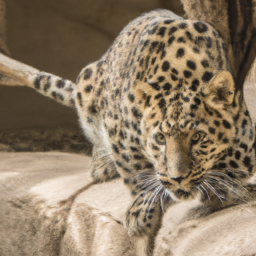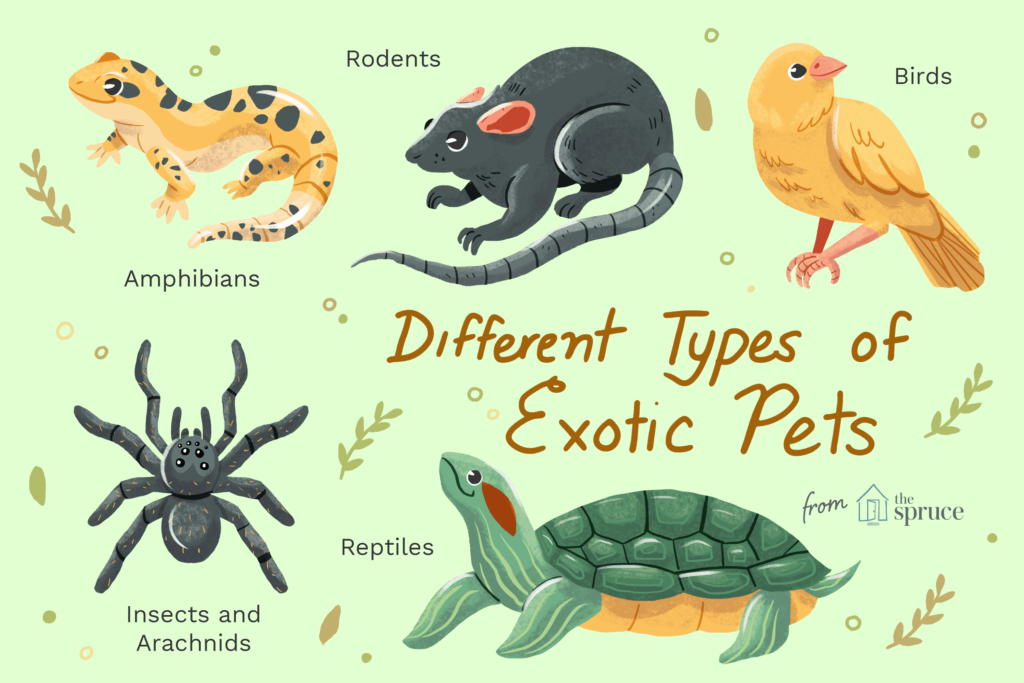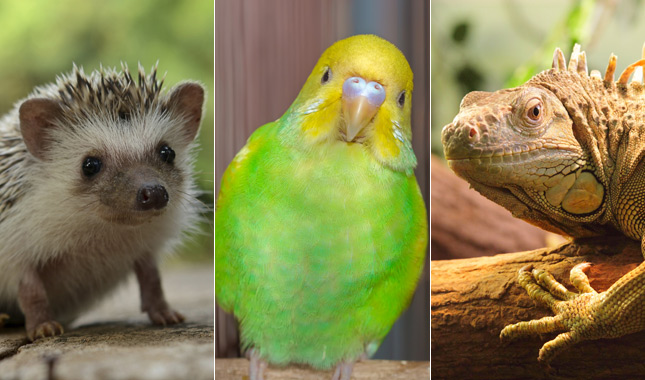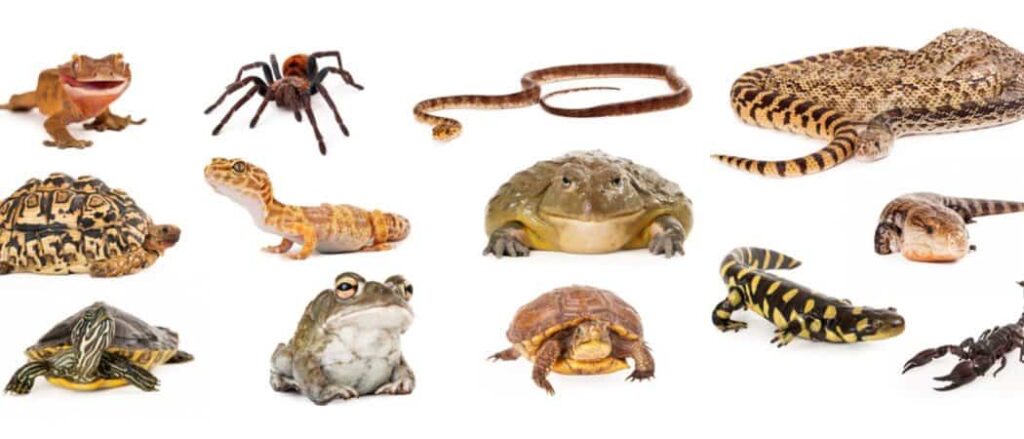
So you’re curious about exotic pets, huh? Well, look no further because we’ve got all the information you need. In this article, we’ll be exploring the fascinating world of exotic pets and answering the burning question: what exactly are considered exotic pets? From unique reptiles to rare birds and everything in between, we’ll uncover the intriguing and sometimes surprising world of these extraordinary companions. Whether you’re a potential owner or just a curious enthusiast, get ready to embark on a captivating journey into the realm of exotic pets.
Definition of Exotic Pets
Explanation of Exotic Pets
Exotic pets are animals that are not commonly kept as pets and are usually native to different regions or countries. These unique creatures differ from traditional pets like cats and dogs due to their unusual characteristics, behaviors, and requirements. They often possess distinct physical features, intriguing behaviors, or require specialized care. Unlike domesticated animals, exotic pets maintain their wild instincts and may have specific needs that owners must meet. Due to their exotic nature, owning these pets can be an exciting and adventurous experience for those who are willing to put in the time, effort, and resources required to care for them.
Legal Description of Exotic Pets
The legal description of exotic pets varies from country to country and even within different regions. Laws surrounding exotic pets are put in place to ensure the safety and welfare of both the animals and the general public. These laws often specify which species are permitted to be kept as pets and outline the regulations for obtaining and owning exotic pets. Some countries may have specific licensing requirements or restrictions on keeping certain species to prevent endangerment or exploitation. It is essential for potential exotic pet owners to research and understand the legal requirements and restrictions in their area before acquiring an exotic pet.
Common Types of Exotic Pets
Exotic Mammals
Exotic mammals are a popular category of exotic pets that includes a wide range of species. Some well-known exotic mammals kept as pets include sugar gliders, hedgehogs, ferrets, and primates like capuchin monkeys. These animals possess unique qualities that set them apart from traditional pet mammals. Exotic mammals often require specialized diets, spacious enclosures, and mental stimulation to thrive in captivity. Due to their exotic nature, it is crucial to thoroughly research and understand the specific needs of each species before considering them as a pet.
Exotic Birds
Exotic birds are another sought-after category of exotic pets, known for their stunning colors, vocal abilities, and distinctive behaviors. Species such as parrots, macaws, cockatoos, and African greys are commonly kept as pets. Exotic birds require a considerable amount of social interaction, mental stimulation, and a suitable environment to mimic their natural habitats. Providing appropriate nutrition, ample space, and mental engagement is vital to ensure the health and well-being of these magnificent creatures.
Exotic Reptiles
Reptiles, with their unique appearance and mesmerizing behavior, have gained popularity as exotic pets. This category includes reptiles like bearded dragons, geckos, chameleons, and iguanas. Exotic reptiles require specific temperature and humidity levels, a carefully constructed habitat, and a balanced diet to thrive in captivity. Regular veterinary check-ups and proper husbandry practices are essential to maintain optimal health for these fascinating creatures.
Exotic Amphibians
Exotic amphibians, such as dart frogs, tree frogs, and salamanders, offer a colorful and captivating option for those interested in enhancing their pet collection. Known for their vibrant colors and diverse patterns, exotic amphibians require a specialized environment that provides ample space, proper temperature, and humidity levels. These delicate creatures have sensitive skin, so maintaining suitable living conditions and a well-balanced diet is crucial for their overall well-being.
Exotic Insects
For those with a fascination for the smallest of creatures, exotic insects can make for intriguing pets. Insect species like stick insects, mantises, beetles, and tarantulas offer a captivating insight into the world of arthropods. Care requirements for exotic insects often involve providing suitable enclosures, specific diets, and environmental conditions that mimic their natural habitats. These pets require a keen eye for detail and a genuine interest in the intricate world of invertebrates.

This image is property of www.thesprucepets.com.
Specific Examples of Exotic Pets
Sugar Gliders
Sugar gliders, small marsupials native to Australia and Indonesia, have increasingly become popular exotic pets. These adorable creatures are known for their ability to glide through the air using the skin flap between their front and back legs. Sugar gliders require a specialized diet, ample space for climbing and exercise, and plenty of social interaction. these nocturnal animals can form strong bonds with their owners and thrive when provided with the appropriate care and attention.
Bearded Dragons
Bearded dragons, native to Australia, make fascinating and interactive reptile pets. These lizards are known for their unique spiky appearance, docile nature, and ease of handling. Bearded dragons require a habitat with adequate space, a suitable temperature gradient, and a varied diet consisting of insects and vegetables. Regular social interaction, proper lighting, and regular veterinary check-ups are essential for their overall well-being.
Capuchin Monkeys
Capuchin monkeys, native to Central and South America, are highly intelligent primates often sought after as exotic pets. These monkeys have a playful nature and can develop strong bonds with their owners, but they require specialized care, extensive socialization, and mental stimulation. Due to their high cognitive abilities and complex social needs, capuchin monkeys are considered challenging pets and require committed owners who can provide the necessary attention, space, and enrichment.
Tarantulas
Tarantulas, known for their large size and hairy appearance, belong to the spider family and are found worldwide. These exotic arachnids are a favorite among those fascinated by unusual pets. Tarantulas need a suitable enclosure with proper ventilation, temperature, and humidity levels. Their diet often consists of live prey such as crickets or roaches. Tarantulas require careful handling and regular monitoring of their environment to ensure their well-being.
Pythons
Pythons, large constrictor snakes found in different parts of the world, have garnered attention as exotic pets. Species like ball pythons and reticulated pythons are commonly kept in captivity. Pythons need a spacious habitat, appropriate temperature and humidity levels, and a diet consisting of appropriately sized prey. Their long lifespan and potential for significant size make it crucial for owners to understand the commitment and responsibility involved in caring for these majestic reptiles.
Legality of Owning Exotic Pets
Overview of Laws by Country
Laws regarding owning exotic pets vary significantly from country to country. Some countries prohibit the ownership of certain species altogether, while others require permits or licenses. It is crucial to research and comply with the specific laws and regulations of the country in which you reside to ensure you are legally allowed to own an exotic pet. Engaging with reputable sources, such as government websites or local animal control agencies, can provide accurate and up-to-date information on the legal framework surrounding exotic pets.
U.S. Laws on Exotic Pets
In the United States, the laws on owning exotic pets differ at the federal, state, and local levels. The U.S. Fish and Wildlife Service (USFWS) regulates the import and export of certain species through the Convention on International Trade in Endangered Species of Wild Fauna and Flora (CITES). Additionally, the Endangered Species Act (ESA) protects specific species from being traded, sold, or possessed without a permit. At the state and local level, regulations may vary widely, with some states having stricter laws than others. It is essential to familiarize yourself with the specific laws in your state and municipality to ensure compliance with the regulations.
CITES Regulations
The Convention on International Trade in Endangered Species of Wild Fauna and Flora (CITES) is an international agreement aimed at protecting endangered species by regulating their international trade. This agreement restricts the import and export of certain exotic species, including endangered or threatened animals and plants. CITES ensures that trade in exotic pets does not negatively impact wild populations and their habitats. Individuals interested in owning an exotic pet listed under CITES must adhere to the regulations, obtain the necessary permits, and ensure their pet has been legally sourced.

This image is property of cdn-images.vetstreet.com.
Risks Associated with Exotic Pets
Health Risks to Humans
One of the risks associated with owning exotic pets is the potential health risks they may pose to their owners. Some exotic animals, such as reptiles and amphibians, can carry harmful bacteria, parasites, or viruses that can be transmitted to humans. Salmonella, for example, is commonly associated with reptiles and can cause severe illness in humans. Additionally, certain exotic pets may have specialized dietary requirements that can increase the risk of nutritional imbalances if not properly managed. It is crucial to practice good hygiene, handle exotic pets safely, and consult with a veterinarian to mitigate these risks.
Potential for Invasive Species
Another risk associated with exotic pets is the potential for them to become invasive species if they are released into the wild. Invasive species can have a detrimental impact on local ecosystems, outcompeting native species and disrupting the natural balance. This risk arises when exotic pets are released intentionally or accidentally into environments where they do not naturally occur. It is vital for exotic pet owners to understand the responsibility of preventing the escape or release of their pets and to never release them into the wild.
Animal Welfare Concerns
Owning exotic pets also raises animal welfare concerns. Many exotic species have complex social, environmental, and dietary needs that can be challenging to meet in a domestic setting. Their natural behaviors and instincts may be suppressed or impeded by captivity, leading to stress or health issues. Exotic pets require specialized care, appropriate housing, and mental stimulation to thrive. It is crucial for owners to have a thorough understanding of the specific needs of the species they are considering as pets and ensure they are committed to providing proper care for the entirety of the animal’s life.
Benefits of Owning Exotic Pets
Emotional Benefits
Owning an exotic pet can provide unique emotional benefits to their owners. Exotic pets often form strong bonds with their caregivers, leading to increased companionship and a sense of purpose. Their unconventional nature can offer a sense of novelty and adventure, fostering feelings of excitement and wonder. Being responsible for the well-being of an exotic pet can also bring a sense of fulfillment and pride, as owners witness the growth and development of their extraordinary companion.
Educational Benefits
Exotic pets offer excellent educational opportunities for both children and adults. The process of researching, understanding, and meeting the specific care needs of exotic pets can cultivate a deeper appreciation for the natural world. By observing and interacting with these unique creatures, individuals can learn about different ecosystems, animal behaviors, and the importance of conservation. Educating oneself about the intricate requirements of exotic pets fosters a mindset of responsibility, empathy, and respect for all living beings.
Potential Conservation Benefits
Through responsible ownership and appreciation for exotic pets, individuals can contribute to conservation efforts. By supporting ethical breeding programs, which prioritize the well-being and genetic diversity of captive populations, owners can assist in the preservation of endangered species. Furthermore, maintaining domestic populations of exotic animals can help raise awareness about endangered species and their conservation needs. Educating others about the threats faced by these animals in the wild can inspire action and support for conservation initiatives.

This image is property of images.saymedia-content.com.
Caring for Exotic Pets
Specific Care needs by Species
Caring for exotic pets requires a deep understanding of the specific needs of each species. Different species have varying requirements for habitat, diet, temperature, humidity, and social interaction. It is essential for owners to research extensively and consult with experts, such as veterinarians specializing in exotic animals or reputable breeders, to ensure they can meet these needs adequately. Developing a comprehensive care plan tailored to the individual species is crucial for the health and well-being of the animal.
Nutritional Requirements
Proper nutrition plays a vital role in maintaining the health of exotic pets. Each species has specific dietary needs, which may include a combination of fresh fruits, vegetables, insects, or specialized commercial diets. Ensuring a balanced and appropriate diet is essential to prevent nutritional deficiencies or imbalances that can lead to health issues. Regularly consulting with a veterinarian experienced in exotic pet nutrition is highly recommended to establish a suitable diet plan for the specific species.
Habitat Requirements
Creating a suitable habitat is critical for the overall well-being of exotic pets. Considerations such as space, temperature, humidity, lighting, and environmental enrichment should all be taken into account. Providing an enclosure that mimics the natural habitat of the animal is beneficial in promoting their physical and mental health. It is crucial to research the specific environmental requirements of the species and invest in proper housing equipment to provide a comfortable and stimulating environment.
Medical Requirements
Exotic pets require regular veterinary care to ensure their long-term health and well-being. Annual check-ups, vaccinations, and routine screenings for parasites are essential to detect and address any health issues promptly. However, finding a veterinarian experienced in treating exotic pets can sometimes be a challenge. It is recommended to locate a veterinarian with knowledge and expertise in exotic animal medicine before acquiring an exotic pet to ensure access to appropriate medical care when needed.
Cost of Owning Exotic Pets
Initial Cost of Purchase
The initial cost of purchasing an exotic pet can vary widely depending on the species and its availability. Some exotic pets may be relatively affordable, while others can be quite expensive. Factors such as rarity, breeding difficulty, and demand can influence the price range. In addition to the cost of acquiring the pet, potential owners should also consider expenses associated with setting up an appropriate enclosure, purchasing equipment, and providing the initial supplies necessary for the pet’s well-being.
Ongoing Care Costs
Owning an exotic pet comes with ongoing care costs that include food, supplements, enclosure maintenance, and environmental enrichment. Exotic pets may require specialized diets that can be more expensive than traditional pet food. Their enclosures may require specific heating or lighting equipment and regular substrate changes. Providing toys, climbing structures, and mental stimulation tools to ensure their happiness and well-being can also add to the ongoing care costs. It is essential to budget and plan for these expenses to provide the best possible care for an exotic pet.
Veterinary Costs
Veterinary costs for exotic pets can be higher than those for traditional pets due to their specialized medical needs. Finding a veterinarian experienced in treating exotic animals may incur additional fees compared to standard veterinary services. In some cases, the need for specialized diagnostic tests or medication can also add to the overall veterinary costs. Regular veterinary check-ups and preventive care are crucial for the health of exotic pets and should be factored into the overall budget.
Unexpected Costs
Owners of exotic pets should be prepared for unexpected costs that may arise throughout the pet’s lifetime. Medical emergencies, unforeseen equipment failures, or changes in care requirements may lead to unexpected expenses. It is advisable to have an emergency fund or pet insurance to help alleviate the financial strain that unexpected costs can bring. Being financially prepared ensures that owners can provide necessary care and support for their exotic pets, even in challenging circumstances.

This image is property of a-z-animals.com.
Ethical Considerations of Owning Exotic Pets
Animal Welfare
The ethical considerations surrounding owning exotic pets revolve primarily around the well-being and quality of life of the animal. Exotic pets have unique needs and require environments that can replicate their natural habitats to the greatest extent possible. When considering owning an exotic pet, it is essential to evaluate whether one can meet the physical, mental, and social requirements of the species. Owners must also thoroughly research the credentials and reputation of breeders or sellers to ensure animals are not obtained from unethical sources, such as wildlife trafficking.
Environmental Impact
The environmental impact of owning exotic pets encompasses several aspects. Introducing non-native species into an ecosystem can disrupt the balance and lead to adverse effects on local wildlife and habitats if the pets are released or escape. Additionally, some exotic pets may require resources such as water, electricity, and specific food sources that might have an ecological impact if not appropriately managed. Exotic pet owners must be aware of these potential environmental consequences and take steps to minimize their impact through responsible ownership.
Ethical Breeding Practices
Ethical breeding practices are an important consideration when it comes to acquiring an exotic pet. Breeders should prioritize the welfare and genetic diversity of the animals they breed. This includes providing appropriate socialization, proper healthcare, and suitable environments for raising the animals. Responsible breeders transparently share information about the lineage, health history, and care requirements of the animals they produce. It is crucial for potential owners to support ethical breeders who prioritize the well-being of the animals over profit.
Alternatives to Owning Exotic Pets
Adopting Domestic Pets
Instead of owning exotic pets, individuals can consider adopting domestic pets from local shelters or rescue organizations. Dogs, cats, rabbits, and other common domesticated animals are often in need of loving homes and can provide companionship and fulfillment to their owners. Adopting a domestic pet ensures that the animal receives care, attention, and a second chance at a happy life.
Visiting Wildlife Sanctuaries
For those interested in experiencing exotic animals firsthand, visiting wildlife sanctuaries and rehabilitation centers can be a fulfilling alternative. These facilities provide a safe and educational environment where individuals can learn about and observe a variety of exotic species without the responsibility of ownership. Sanctuaries often focus on animal welfare, conservation, and education, allowing visitors to support their initiatives while gaining a deeper understanding of these fascinating creatures.
Supporting Conservation Efforts
Supporting conservation efforts is an impactful way to contribute to the preservation of exotic species and their habitats. Organizations dedicated to conserving endangered species and their environments rely on public support to fund their initiatives. By donating to reputable conservation organizations or participating in volunteer programs, individuals can make a positive difference in the lives of exotic animals while ensuring their protection for future generations.
In conclusion, owning an exotic pet can be an exciting and rewarding experience for those willing to make the necessary commitments. However, it is essential to fully understand the specific needs, legal requirements, and potential risks associated with owning an exotic pet. Responsible ownership involves providing proper care, supporting conservation efforts, and prioritizing the well-being of the animal. By making informed decisions and ensuring ethical practices, individuals can enjoy the unique bond and educational opportunities exotic pets offer while contributing to the welfare and conservation of these extraordinary creatures.






